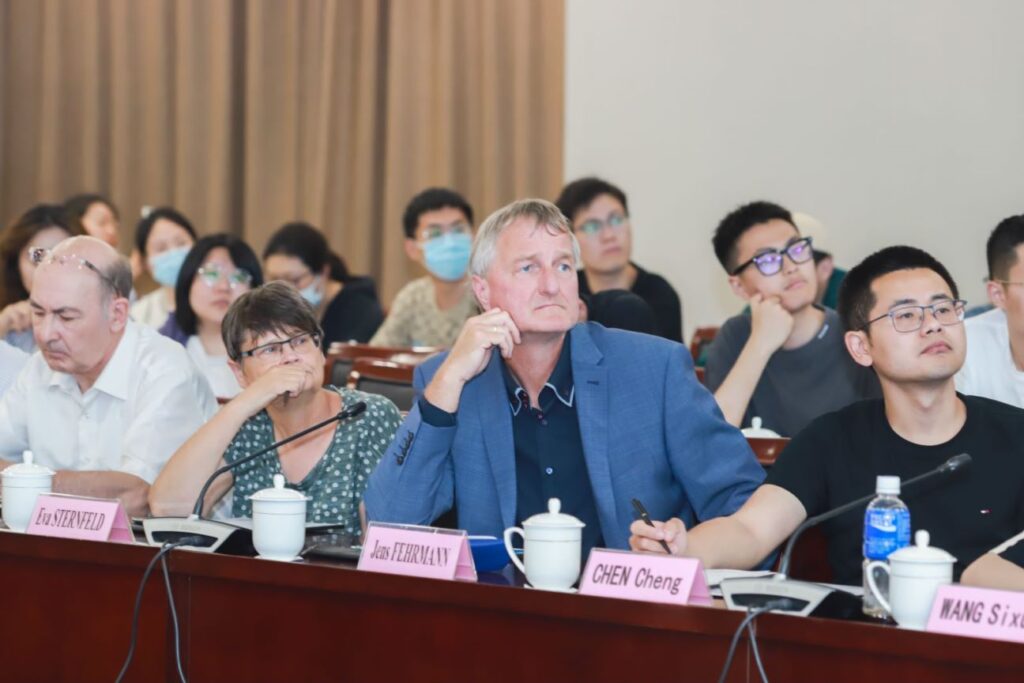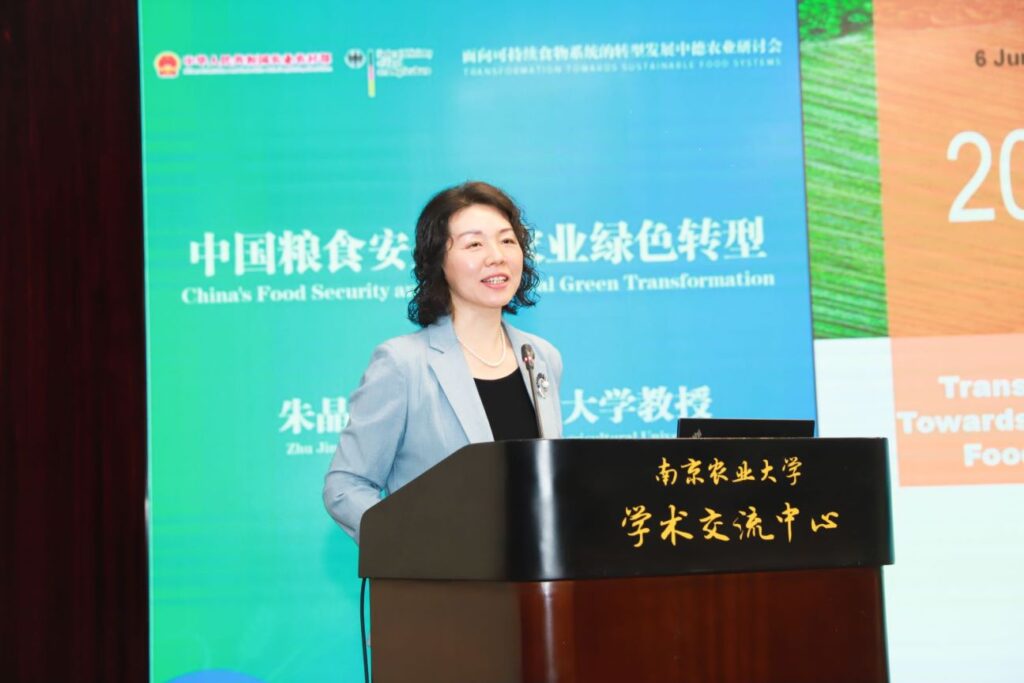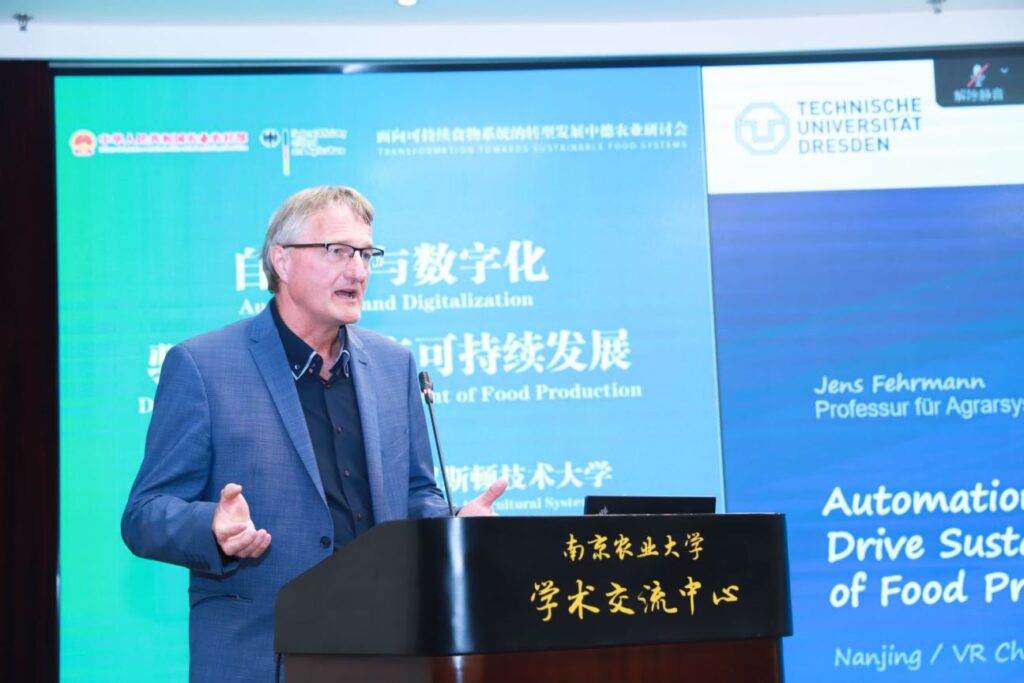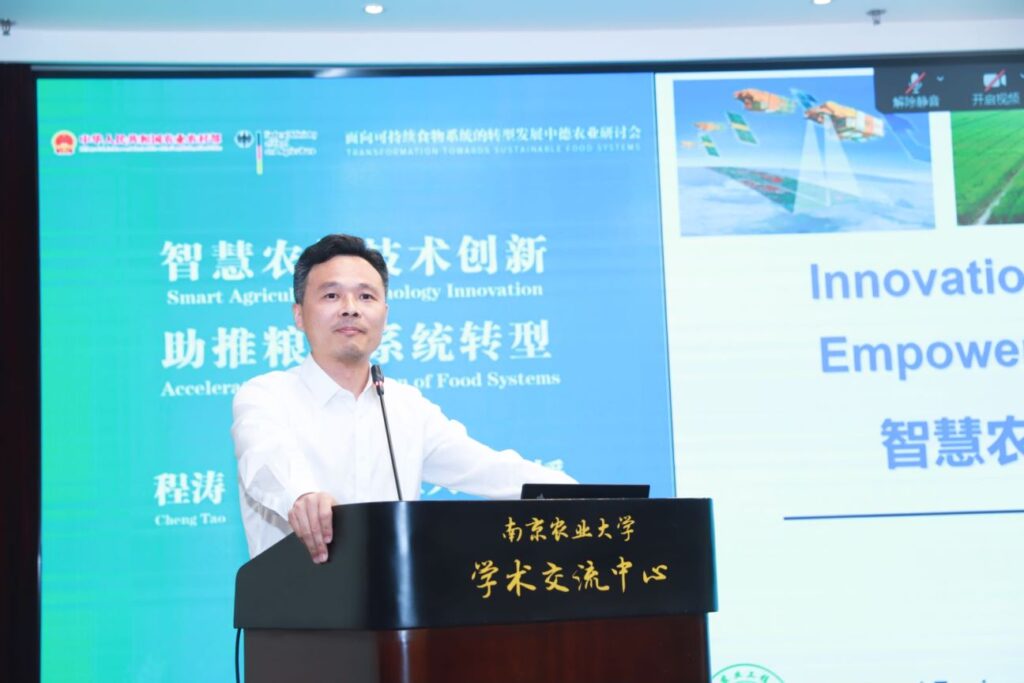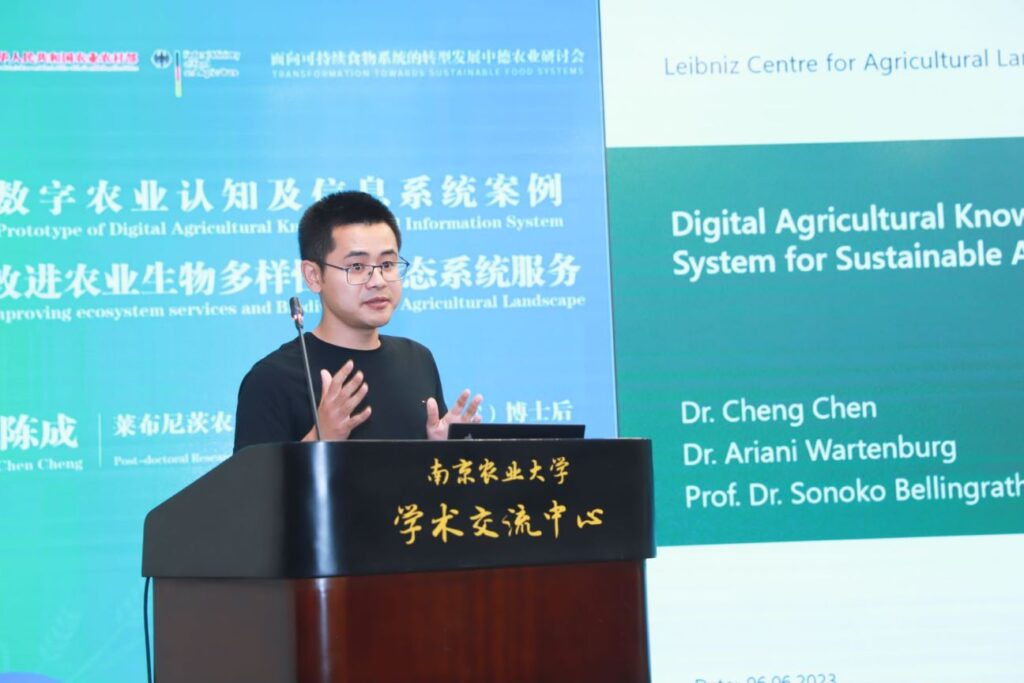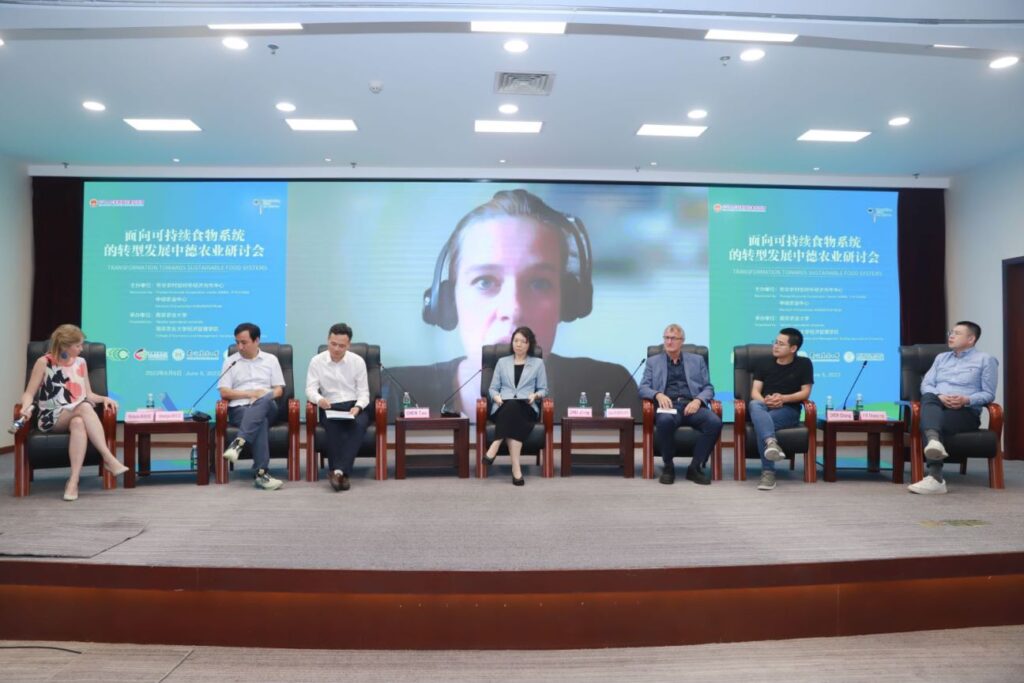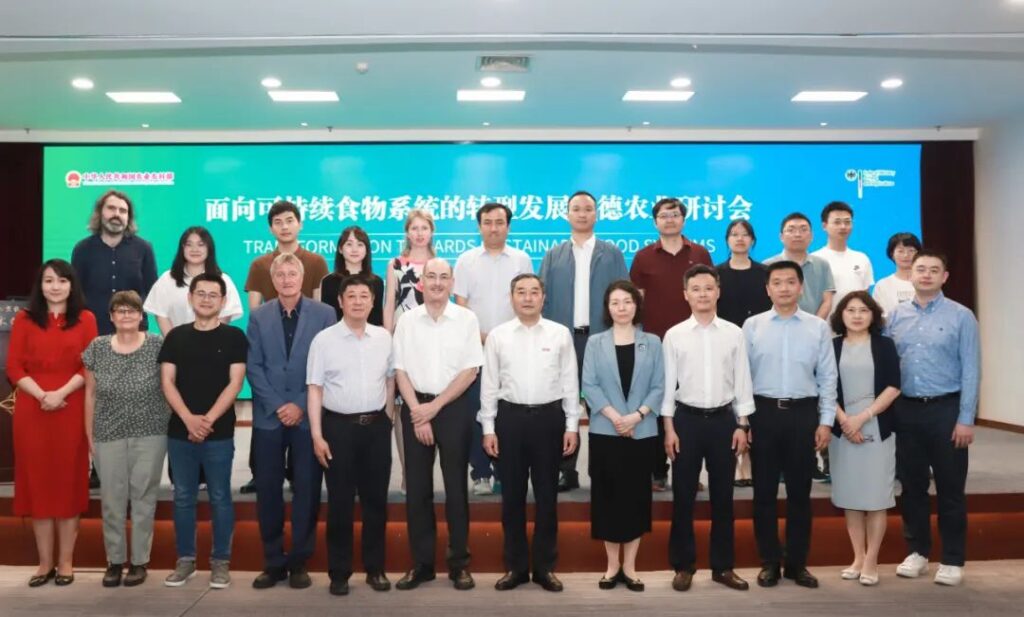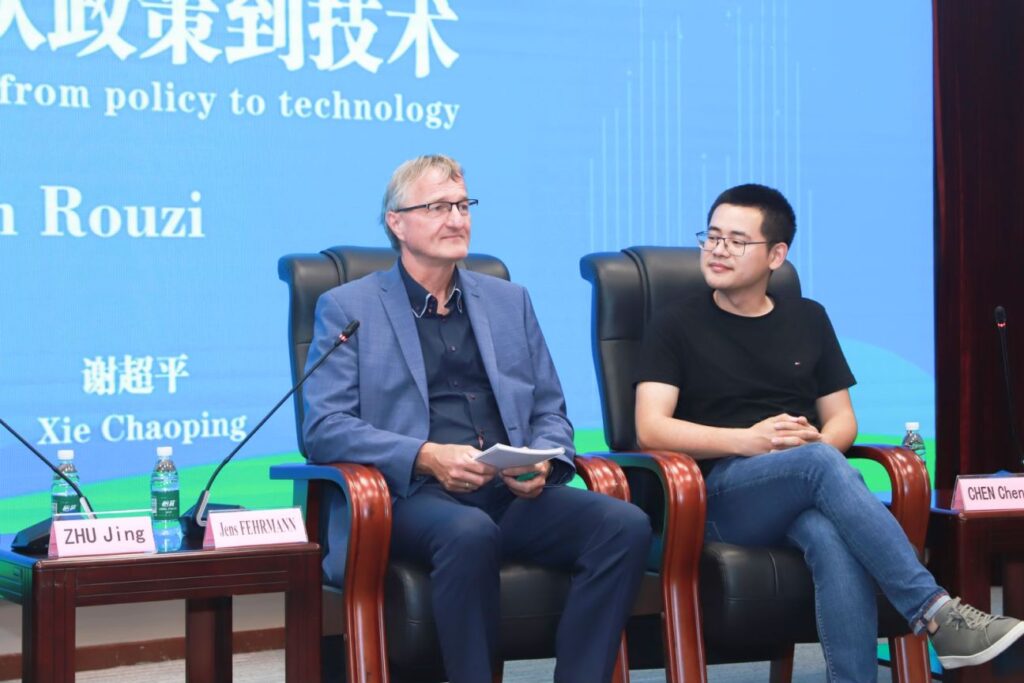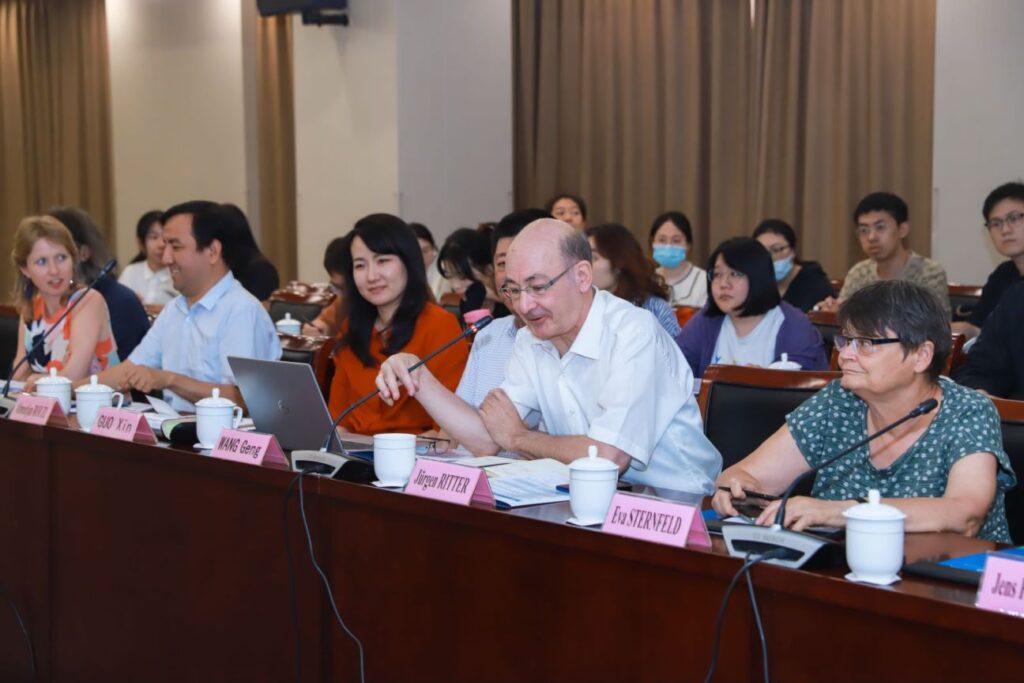On 06 June, the Sino-German Agricultural Centre (DCZ) and Nanjing Agricultural University (NAU) brought together a group of international experts to discuss pathways towards sustainable food systems. Jens Fehrmann from Technische Universität Dresden and Cheng CHEN from the Leibniz Centre for Agricultural Landscape Research (ZALF) discussed with their colleagues Jing ZHU, Tao CHENG, and Chaoping XIE from NAU how to transform our food systems to ensure access to healthy and nutritious food for everyone while protecting scarce natural resources and the environment for future generations.
Climate change, decreasing biodiversity, declining rural populations, and food-related health issues are some of the key signs reminding us of the growing environmental and social costs associated with our current agri-food systems. A transformation towards a more sustainable food system is urgently needed. As two big agricultural countries, both China and Germany have carried out positive attempts and gained rich experience in re-thinking the ways in which we produce and consume food. Using the food systems approach as a conceptual framework, the workshop zoomed in on digital technologies and the repositioning of agricultural support policies to explore potential pathways towards transformation.
The Chinese and German managing directors of the DCZ, Geng WANG and Jürgen Ritter opened the workshop with two welcome speeches, highlighting the need for a transformation towards sustainable food systems as well as the prospects of Sino-German cooperation in this area. In his welcome address, Jingyun LIU, deputy party secretary of NAU, gave an overview of the longstanding ties between NAU and German research institutions in scientific and technological cooperation.
The welcome remarks were followed by keynote speeches by four of the invited experts. Jing ZHU from NAU gave a detailed overview of China’s food security and agricultural green transformation. Her presentation stressed the achievements of China’s food system in feeding the country’s large population on limited agricultural resources, but also pointed to the growing need for a green transformation as the negative impacts of food production on the environment are becoming increasingly evident. By focusing on four new approaches, namely smart agriculture, sustainable agricultural mechanization, straw recycling, and corn-soybean intercropping, professor Zhu explored potential pathways and pitfalls in China’s current attempt to make the agricultural sector more environmentally friendly while ensuring a high degree of self-sufficiency.
In his talk, Jens Fehrmann from Dresden Technical University elaborated on the role of automation and digitalization as drivers of sustainable food production. Technological innovation will be key for the food system to deliver more environmental and social benefits while maintaining productivity, Professor Fehrmann argued in his speech. Drawing on experiences from Landnetz, one of Germany’s 14 digital trial fields, as well as the wider agriculture sector in Germany, professor Fehrmann highlighted some of the development trends in autonomous agricultural machinery, smart farming management systems, and the use of alternative energy sources in agricultural production.
Tao CHENG from NAU provided the Chinese perspective on the role of smart agriculture in empowering the transformation of food systems. His talk gave an overview of the fast-paced development in this sector, exploring how remote sensing, crop modelling, as well as precision machinery can be leveraged to promote high crop yields while reducing agriculture’s ecological footprint. Professor CHENG also showed how his team at NAU makes use of demonstration platforms and field days to promote the new technologies amongst farmers and raise awareness of their benefits.
Cheng CHEN from the Leibniz Centre for Agricultural Landscape Research (ZALF) introduced the Digital Agricultural Knowledge and Information System (DAKIS) developed by ZALF to support sustainable agriculture. By combining technologies such as remote sensing, crop modelling, and artificial intelligence, DAKIS supports farmers in making decisions that combine environmental and climate protection with high yields and stable incomes from farming. Currently trialed in Bavaria and Brandenburg, two German federal states with very different agrarian and land use structures, the system enables farmers to implement site-specific, diversified land use and management practices in an economically viable way. As a result, DAKIS helps replace large, uniform fields and monocultures with diverse landscape structures, Mr. CHEN explained.
The workshop concluded with a panel discussion that involved all five experts and was moderated by Ahmatjan Rouzi and Michaela Boehme from the DCZ. In linking the different perspectives presented by the keynote speakers, the panel addressed the following questions: How to reconcile the competing objectives around food security, farmers’ livelihoods, and environmental and climate protection? Where is innovation coming from and how can it be made socially inclusive? Which policies can best address the necessary transformation towards sustainable food systems? The discussion made clear that the envisaged transformation of food systems will require trade-offs between environmental, social, and food security objectives. With the help of digital and smart technologies, stakeholders can optimize the equity and efficiency of such trade-offs by taking into account spatial and temporal factors. There was also broad agreement on the need to improve farmers’ access to smart technologies and address common concerns around investment costs, data ownership, and systems interoperability. Finally, panelists also addressed the need for repositioning agricultural support policies to promote the transition from direct production support towards subsidies aimed at improving nutritional and environmental outcomes.
The workshop was jointly organized by the DCZ and the Foreign Economic Cooperation Center (FECC) of the Chinese Ministry of Agricultural and Rural Affairs (MARA) and hosted with kind support of Nanjing Agricultural University. Close to 50 researchers and scientists from NAU attended the event on site and more than 400 people joined the livestream.




